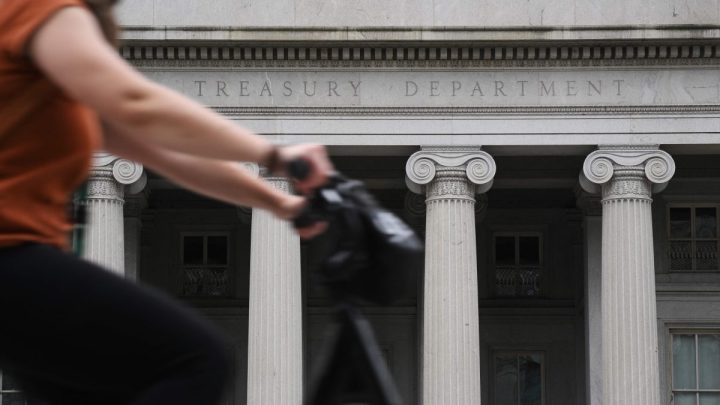
How the debt ceiling fight puts the indispensable U.S. Treasurys market at risk
How the debt ceiling fight puts the indispensable U.S. Treasurys market at risk

News that House Speaker Kevin McCarthy and President Joe Biden are getting closer to a debt ceiling deal has made investors feel better about lending to the federal government.
About six weeks ago, the yield on a one-month Treasury bill was about 3.5%. Those were bills that were maturing before Treasury Secretary Janet Yellen’s latest announcement of the debt ceiling deadline extension to June 5. Yesterday, well within that maturity window, the government was having to pay almost 6.1% on one-month treasures.
The $24 trillion market for U.S. Treasurys — again, meaning federal government bonds — is the deepest and most liquid bond market in the world, and a linchpin of the global financial system. So, what does that actually mean?
The last time this debt ceiling game of chicken got especially intense was in 2011. Back then, when investors feared the U.S. might default on short-term Treasurys, they responded by buying more long-term Treasurys.
“U.S. Treasurys are the safest asset anywhere, even in the case of default,” said Yesha Yadav, a law professor at Vanderbilt University. “And so that’s the reason why we saw this really paradoxical situation.”
Whenever there’s a reason to panic — whether with a pandemic, war or a financial meltdown — essentially the entire global financial system buys U.S. government debt.
“All of that is based on two factors: That the U.S. government will never default, and No. 2, that the Treasury is a very tradeable asset in the marketplace,” Yadav said.
U.S. Treasurys are also used as collateral for short-term business loans.
“A company is settling its bills for the day, it knows it needs to pay out a certain amount of cash it doesn’t have enough, so it will basically trade those Treasurys temporarily for some cash,” said Alex Arnon at University of Pennsylvania’s Wharton School.
Part of the reason Treasurys are indispensable is there really isn’t a viable alternative. For instance, China doesn’t issue enough debt yet, and other countries’ economies just aren’t large enough.
But economist Sonia Meskin at BNY Mellon Investment Management said people shouldn’t get smug.
“We’re issuing this debt on full faith and credit. We don’t want people to start questioning that, even at the margins,” she said.
Treasury interest rates are the benchmark for consumer credit too. If over time the global economy loses faith in our full faith and credit, everything from mortgages to car loans will get more expensive.
There’s a lot happening in the world. Through it all, Marketplace is here for you.
You rely on Marketplace to break down the world’s events and tell you how it affects you in a fact-based, approachable way. We rely on your financial support to keep making that possible.
Your donation today powers the independent journalism that you rely on. For just $5/month, you can help sustain Marketplace so we can keep reporting on the things that matter to you.












